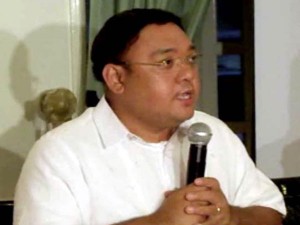SC hears petitioners vs cybercrime law

Lawyer Harry Roque on Sunday said he was one of the five speakers to deliver their oral arguments on the anticybercrime law on Jan. 15, specifically on the subject of online libel and how the Internet works. INQUIRER FILE PHOTO
The Supreme Court has elected five counsels to argue before the court against various aspects of Republic Act No. 10175—the Cybercrime Prevention Act of 2012—subject to its confirmation.
Lawyer Harry Roque on Sunday said he was one of the five speakers to deliver their oral arguments on the anticybercrime law on Jan. 15, specifically on the subject of online libel and how the Internet works.
In an interview, Roque said the arrangement was agreed upon in a meeting presided over by Associate Justice Roberto Abad with the anticybercrime petitioners who asked the government to strike down RA 10175 as unconstitutional. He said the five speakers, who belong to the 15 groups of petitioners, will have 10 minutes each to make a presentation on five issues that were among those they questioned in the law.
The other speakers are Bayan Muna Rep. Neri Colmenares, UP law professor JJ Disini, Philippine Bar Association legal counsel Rodel Cruz and lawyer Julius Matibag of the National Union of People’s Lawyers.
The Jan. 15 oral arguments will be the first to be presided over by Chief Justice Ma. Lourdes Sereno since her appointment as head of the judiciary in August last year.
Shortly after President Aquino signed RA 10175 into law, the high tribunal suspended its implementation for four months until February after consolidating the 15 petitions against it.
The law became controversial because it criminalizes online libel, among other things, angering journalists who have been campaigning for the decriminalization of libel.
According to Roque, Colmenares will take on Sections 6 and 7 of the law (which raised by one degree the penalties provided for under the Revised Penal Code for all crimes committed through and with the use of information and communications and which provides that any person charged for the alleged offense covered will not be spared from violations of the RPC and other special laws); Disini, Section 12 (which authorizes real-time collection of data); Cruz, Section 19 (which authorized the Department of Justice to block access to computer data when such data is “prima facie found to be in violation of the provisions of the Act”) and Matibag, Section 5 (which considers as offenses aiding or abetting in the commission of cybercrime and attempt in the commission of cybercrime). With a report from Jerome Aning